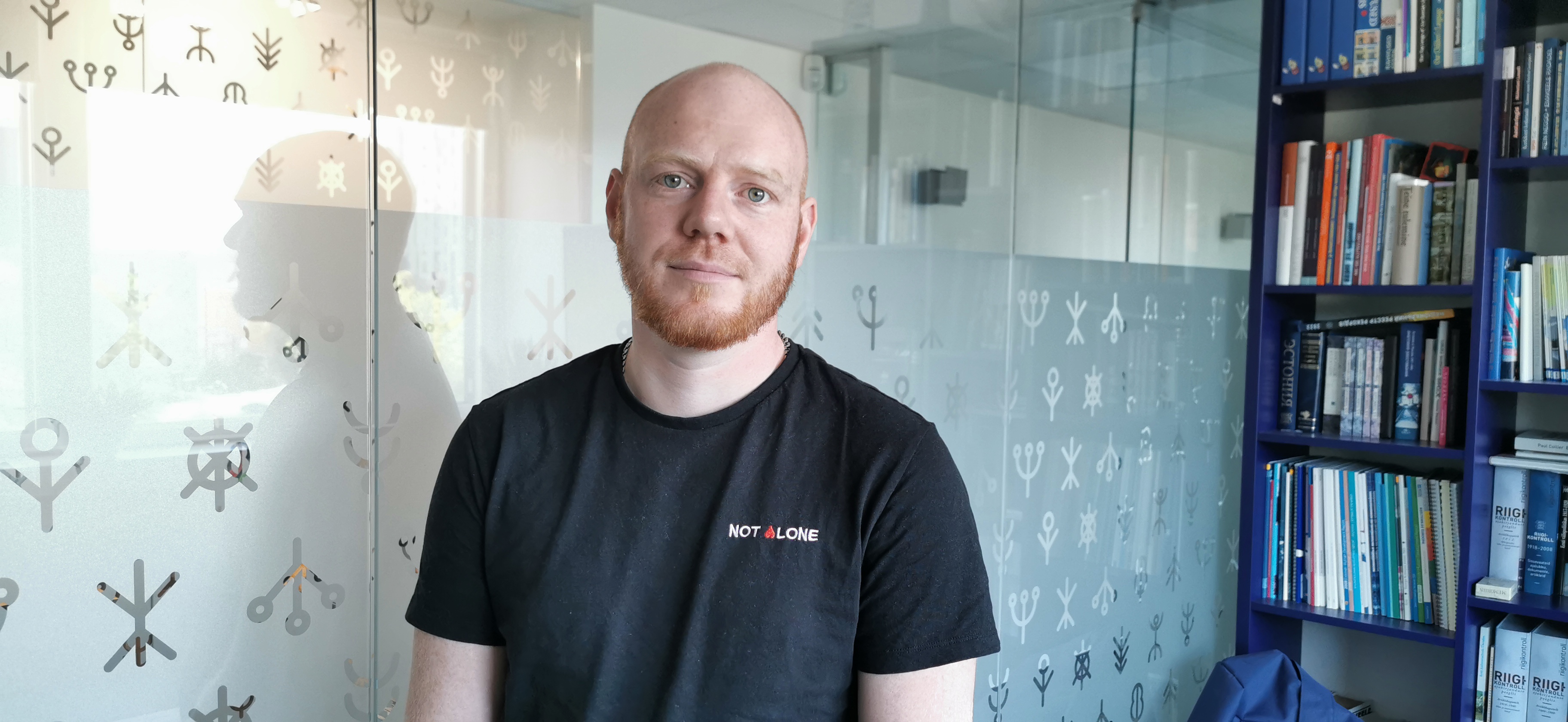Aleksander Petrov, who has returned to his grandmother's homeland, emphasizes the importance of communicating in Estonian, because this is the only way to practice what you have learned and thereby expand your circle of friends and find new opportunities for development, study and work.

What brought you to Estonia?
I came from St. Petersburg to my grandmother's homeland in the fall of 2022. I am an Estonian citizen because my paternal grandmother was born in Mustvee during the period of first independence in 1931. Now Estonia has becme home to my family.
What do you like about Estonia?
I like almost everything in Estonia - cleanliness, security, silence, fairly high standard of living, nature, opportunities offered by electronic administration and much more. I haven't found any sharp negatives for myself so far.
Why did you decide to learn Estonian?
The main motivation for learning the language was that I am not planning to move anywhere from Estonia soon. I can therefore highlight several aspects of everyday life where language skills are necessary. First, my son goes to kindergarten here and will go to Estonian school. I consider it important to be able to support him. Secondly, in any case, I do not want to limit my social circle only to the Russian-speaking population, even though it is quite possible here. Thirdly, knowing any language, especially the official language of the country where you live, always opens opportunities for development, study and work. I am also used to showing respect to people and not putting them in an uncomfortable situation - living in Estonia, it is normal to communicate in Estonian without switching to Russian or English.
What are the difficulties of learning a language? Have there been times when you wanted to give up learning Estonian? How did you overcome the difficulties?
A few years ago, in the middle of January, I applied to the Integration Foundation and already in the middle of February I started learning the Estonian language. I got into a good friendly group with a great teacher. Then I went on to the next course and so on until this summer. Of course, there were, are and will be difficulties - sometimes you don't understand the grammar right away, sometimes you don't have enough vocabulary... But I think it's normal and I didn't want to stop studying.
How did the adaptation in Estonia go? Did the locals welcome you?
Adaptation was easy. At first, I lived in Narva, where there is no language barrier and in general everyone was ready to help me and give advice if possible. At first it was quite difficult for me to understand that there is no need to fill out a bunch of documents and all you need is an ID card. Work, taxes, doctors and so on - you can figure things out on the internet in a couple of hours and there is always someone to help. We keep in touch with the friends I made in Narva, even though I moved to Tallinn.
What did you do to communicate more in Estonian?
After moving to Tallinn, I started to communicate more in Estonian, and of course this increased my language skills. But even here, communicating in Estonian without advanced language skills is quite difficult, because if you think about it, if you try to understand what was said to you or simply ask to repeat the same sentence a little more slowly, people will very quickly switch to Russian or English. Of course, this makes it easier to cope, but unfortunately, the quality of communication and thus learning the Estonian language suffers.
What would you recommend to other newcomers who have arrived in Estonia?
Everyone's situation is different and there is probably no single piece of advice. In general, you should not be afraid of moving to Estonia if you have the desire and the means. And of course, learning the language in any possible way is very important here both for communication and securing a job, coping with everyday life and ensuring the best future for your family.
FOR INFORMATION
The Settle in Estonia Programme is a free educational programme provided by the Estonian state which is intended to help the foreigners who have arrived in Estonia to adapt and become accustomed to local life more easily. We offer courses for people who have come to live or study in Estonia and have lived here for less than 5 years. For example, war refugees to whom Estonia offers international or temporary protection, as well as people who have come to Estonia to work or do business here or relocate with their family member. We offer language training and other courses to help you cope with everyday life in Estonia. Read more and register: https://integratsioon.ee/en/kohanemine. The adaptation programme is co-funded by the European Union and the state budget.
